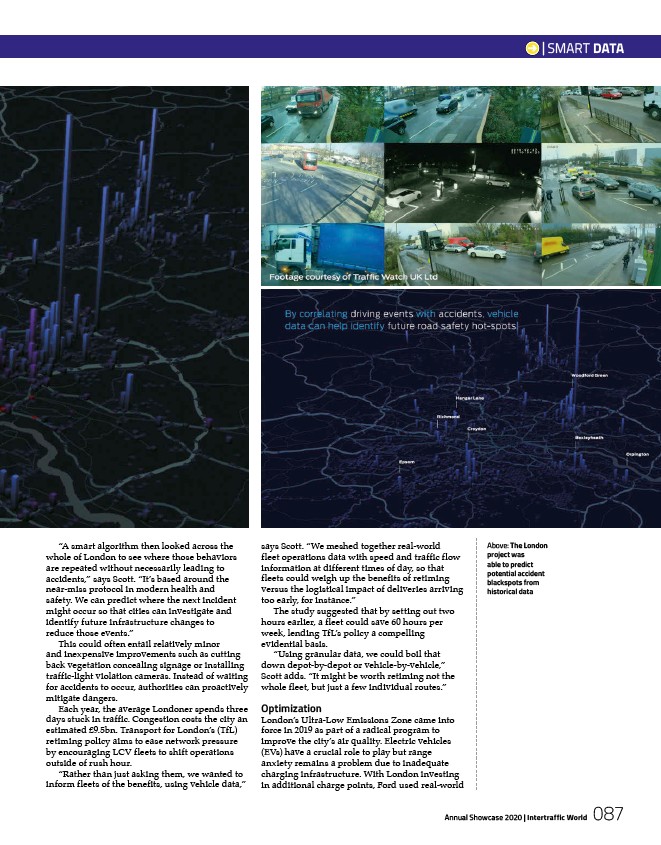
| SMART DATA
Above: The London
project was
able to predict
potential accident
blackspots from
historical data
“A smart algorithm then looked across the
whole of London to see where those behaviors
are repeated without necessarily leading to
accidents,” says Scott. “It’s based around the
near-miss protocol in modern health and
safety. We can predict where the next incident
might occur so that cities can investigate and
identify future infrastructure changes to
reduce those events.”
This could often entail relatively minor
and inexpensive improvements such as cutting
back vegetation concealing signage or installing
traffic-light violation cameras. Instead of waiting
for accidents to occur, authorities can proactively
mitigate dangers.
Each year, the average Londoner spends three
days stuck in traffic. Congestion costs the city an
estimated £9.5bn. Transport for London’s (TfL)
retiming policy aims to ease network pressure
by encouraging LCV fleets to shift operations
outside of rush hour.
“Rather than just asking them, we wanted to
inform fleets of the benefits, using vehicle data,”
says Scott. “We meshed together real-world
fleet operations data with speed and traffic flow
information at different times of day, so that
fleets could weigh up the benefits of retiming
versus the logistical impact of deliveries arriving
too early, for instance.”
The study suggested that by setting out two
hours earlier, a fleet could save 60 hours per
week, lending TfL’s policy a compelling
evidential basis.
“Using granular data, we could boil that
down depot-by-depot or vehicle-by-vehicle,”
Scott adds. “It might be worth retiming not the
whole fleet, but just a few individual routes.”
Optimization
London’s Ultra-Low Emissions Zone came into
force in 2019 as part of a radical program to
improve the city’s air quality. Electric vehicles
(EVs) have a crucial role to play but range
anxiety remains a problem due to inadequate
charging infrastructure. With London investing
in additional charge points, Ford used real-world
Annual Showcase 2020 | Intertraffic World
087